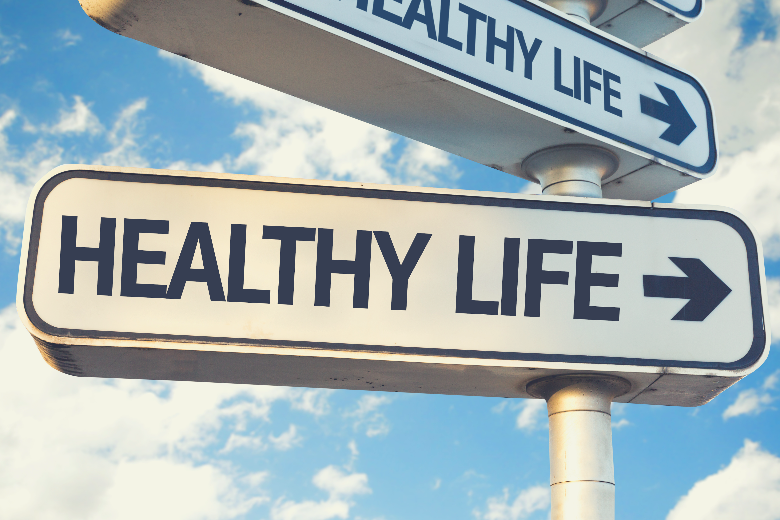For anyone trying to stay healthy, vegetarianism may seem great on paper, but it’s easier said than done.
A majority of us were raised eating meat and it’s hard to break away from something you’ve known your entire life.
Despite any obstacles, a vegetarian diet plan may be good for you.
The vegetarian diet helped me when I gained over 15lbs in one month. My nutrition needed fine tuning and it got me back into shape.

Becoming a Vegetarian
While a vegetarian diet may be beneficial, it’s not something to think about lightly. No diet plan is.
Most people adopt a vegetarian lifestyle for reasons including health benefits, previous medical conditions, or ethical practices.
Whatever the reason may be, adopting a vegetarian diet plan can do some amazing things for your overall health and wellbeing.
Vegetarianism: What is it?
Vegetarians typically refrain from eating meat, poultry, and fish. The normally allowed food groups are vegetables, grains, nuts, seeds, and fruits.
While most would assume going vegetarian just means giving up meat, there’s actually more to it than that.
There are multiple types of vegetarian diets, and while they all exclude meat, there’s other exclusions which are unique to each diet type:
- Lacto-ovo Vegetarian: This form of vegetarianism is one of the most common and recommended for those new to the vegetarian diet plan. It excludes meat, fish, and poultry, but dairy products and eggs are still included.
- Pescatarian: Pescatarians refrain from eating meat, poultry, eggs, and dairy products. However, fish remains as a staple food of the diet.
- Lacto-vegetarian: Lacto-vegetarian diets exclude meat, fish, eggs, and poultry. However, milk and other dairy products like cheese and yogurt are included.
- Ovo-vegetarian: Ovo-vegetarian diets exclude meat, fish, poultry, and dairy products. However, eggs are still included in the diet.
- Vegan: The vegan diet can be the most difficult vegetarian diet to adhere to as it’s the most restrictive. Vegan diets restrict meat, fish, poultry, eggs, dairy products, and gelatin. Some vegans even refrain from consuming other animal derived products, like honey.
While each vegetarian diet plan has its perks, there may be certain aspects you’ll find unappealing.
For instance, if you enjoy eating dairy products, then an ovo-vegetarian diet may not be the best fit for you.
If you have certain dietary needs, like omega-3 fatty acids; a pescatarian diet could be a good choice.
No matter which type appeals to you, becoming vegetarian may have a few health benefits.
Health Benefits
There can be numerous reasons to adopt a vegetarian diet plan, but the most persuasive reason may be for its health benefits.
Adopting a diet free from meat means the health risks often associated with eating meat can be reduced.
Not only that, there are other benefits from going vegetarian, like reduced risk for certain cancers, healthy weight loss, lower blood pressure, and more.
Lower Blood Pressure
There are two well-known causes behind high blood pressure; increases in sodium and Low-Density Lipoprotein (LDL) intake.
Sodium has the potential to raise blood pressure due to its effects on blood vessels.
Higher concetrations of sodium in the blood impair the kidney’s ability to relieve the body of excess fluids.
This build-up of fluids in the blood vessels leads to high blood pressure.
Low-Density Lipoproteins (LDL’s) are known for increasing blood pressure due to their effects on cholesterol levels, and thusly, blood vessels.
Higher concentrations of LDL’s can cause arteries to narrow and harden, thereby raising blood pressure.
Fortunately, a vegetarian diet can help lower blood pressure.
Vegetarian diets are typically lower in both sodium and transitive fats (types of LDL’s).
Not only that, but they also tend to be higher in nutrients that contribute to lowering blood pressure and cholesterol levels; nutrients like fiber and plant sterols and stanols (substances that block the body’s ability to absorb cholesterol).
Better Heart Health
While there are multiple forms of the vegetarian diet, most of which may promote better heart health.
Most vegetarian diets help improve heart health by lowering the intake of animal products and other nutrients that are commonly damaging to heart health.
However, they also tend to include more nutrients that promote better heart health.
While some forms of vegetarian diets may include more of these key nutrients than others, their overall benefit to heart health remains the same.
For instance, pescatarian diets often include certain types of fish that contain high amounts of omega-3 fatty acids.
These types of fatty acids are known to contribute to better heart health by reducing triglyceride levels, reducing inflammation, reducing blood clotting, and lowering blood pressure.
These plant-based diets can also provide more fiber, which helps to lower cholesterol levels.
Fiber also contributes to heart health by reducing the number of saturated fats your body absorbs.
Most vegetarian diets include sources of fiber from plants like tomatoes, celery, oats, grains, nuts, and other plant-based foods.
While vegetarian diets may help to reduce the risk of heart disease because of the lack of saturated animal fats.
They can also promote heart health by increasing your intake of nutrients that promote better heart health.
However, a vegetarian diet can still be unhealthy if you go about it the wrong way.
After all, pizza can still be considered vegetarian-friendly, but it can contain high amounts of saturated fats.
So in order to gain the full heart healthy benefits of a vegetarian diet, it’s best to consume whole foods low in saturated fats.
Healthy Weight Loss
Weight loss itself is neither good nor bad. It all depends on various factors including current weight, body fat percentage, and the type of weight lost (i.e.. fat or muscle).
Healthy weight loss however, is a beneficial reduction in bodyfat percentage.
While individual results may vary, vegetarian diets can actually help you to lose weight in a healthy manner.
A possible reason for this healthy weight loss may be that the plant-based diets typically consist of less calories and fats compared to diets consisting of more animal products.
Also, vegetarian diets contain more nutrients like fiber, which can help you to lose weight and lower cholesterol levels.
A lot of fruits and vegetables contain at least small quantities of fiber. They can help to keep you fuller longer, while still providing essential nutrients.
While a vegetarian diet plan can help you to lose weight in a healthy way, that only takes effect if you burn more calories than you consume.
Also, it’s best to avoid foods with high amounts of sugars and fats, even if they are a part of a vegetarian diet.
Reduced Risk for Diabetes
Another health benefit of a vegetarian diet plan is that it can lower the risk of developing diabetes.
Studies show that diets high in fruits, vegetables, and fiber can help to reduce the risk for diabetes by lowering blood sugar and controlling insulin response.
But not all vegetarian diets are created equal.
Even if you’re abstaining from animal-based food products, a diet high in carbohydrates and sugars can increase your risk for developing diabetes as they can be harmful to your body’s insulin response.
If you want to take full advantage of this health benefit, abstain from consuming high amounts of carbs and sugars while on a vegetarian diet.
This is helpful even if you aren’t a vegetarian.
Precautions and Health Concerns
While there can be multiple benefits from becoming a vegetarian, there can also be a few health concerns.
Some vegetarian diets may lead to deficiencies in certain key nutrients.
Vegetarian diets that do not include animal products can lack nutrients like vitamin B-12, calcium, vitamin D, iron, zinc, and omega-3 fatty acids.
However, you can gain these nutrients by taking supplements and consuming fortified foods.
Who Benefits from Vegetarianism?
Although there are a few health risks associated with vegetarian diets, they can easily be taken care of with supplements and fortified foods.
Besides, there are a lot of health benefits from going green, and many people can stand to gain something from that.
You may benefit the most from a vegetarian diet if you are overweight, have high cholesterol, have high blood sugar, are at risk for diabetes, or if you are just seeking to stay fit.
Who Should Avoid this Diet?
Although many people can benefit from adopting a vegetarian diet, there are others who may actually want to consider avoiding a vegetarian diet.
Due to the potential lack of certain nutrients, those who need these nutrients the most should avoid this diet.
Pregnant or breastfeeding women should speak with a physician before changing to a vegetarian diet as their need for iron, calcium, and vitamin B-12 is much greater.
Deficiencies in these vitamins and minerals can be harmful to both the mother and the baby.
Young children and infants should be taken extra care of if you’re considering putting them on a vegetarian diet.
Both have specific nutrition needs since they’re in a major stage of development.
They also need more calories than the average adult, and it may be difficult to provide them on a vegetarian diet.
High amounts of fiber should also be avoided as it can inhibit the absorption of certain nutrients that children need the most.
Getting Started
One of the most important aspects of a vegetarian diet can be acclimating to it properly.
In order to succeed at maintaining a healthy vegetarian diet, you have to begin with the proper foods and eating habits.
Also, a sudden and drastic change in your diet can upset your digestive tract if you’re eating more foods that you aren’t used to eating. It can also be mentally taxing for some.
One way to begin is by slowly reducing the amount of meat you consume to 2-3 times per week until you are ready to make the switch.
During this time, you can introduce more wholesome fruits and vegetables like kale, broccoli, spinach, and pears.
Once you reduce your meat intake to zero, ensure you are getting enough protein by consuming it from sources like beans, tofu, eggs and dairy products (if applicable), or nuts.
Foods to Avoid
The key to any successful diet is proper nutrition.
Proper nutrition entails consuming adequate amounts of nutrients and less of food groups that can be damaging to your health.
Clearly meat is out of the picture when it comes to a vegetarian diet, but there are a few other foods to avoid:
- Saturated Fats: Saturated fats should be avoided as they can raise cholesterol levels and affect your heart’s health.
- Foods high in sugar: Foods high in sugar can adversely affect blood sugar levels and have the potential to cause weight gain.
- Foods high in carbohydrates: While carbohydrates are an important part of a healthy diet, consuming high amounts of carbs can cause blood sugar spikes. It can also lead to weight gain and increase your risk for diabetes.

Foods to Include in Your Shopping List
A vegetarian diet plan is best when you include necessary necessary food groups to deliver the most amounts of vitamins, minerals, and other nutrients for your health and wellbeing.
However, the food groups you can include all depend on the type of vegetarian diet and your nutritional dietary needs:
- Fibrous foods: Oats, leafy greens, carrots, legumes, and celery are a few food groups with good quantities of fiber.
- Vegetables: Vegetables like dark-leafy greens, tomatoes, squash, and zucchini make excellent choices for your shopping list.
- Fruits: Fruits like apples, pears, bananas, and oranges can be great additions to your diet.
- Nuts and Seeds: Nuts and seeds contain healthy omega-3 fatty acids, protein, and trace amounts of fiber. All of which are a part of a healthy diet.
- Eggs: Depending on which vegetarian diet plan you’re considering, eggs can be a great way to get enough protein, and they also contain small amounts of healthy fats.
- Dairy: If the vegetarian diet you’re considering includes dairy, then it can be an excellent way to get nutrients like calcium, protein, potassium, vitamin D, and more.
- Healthy fats: While fish can be a major source of healthy fats like omega-3 fats, not all vegetarian diets include fish. Another way to get those fats is through foods and oils like avocados, flax seeds, canola oil, and olive oil.
If you consume the above food groups in moderation and take care of daily nutrition needs, a vegetarian diet can benefit both your health and wellbeing.
Piecing it all Together
While there may be different types of vegetarian diets, they all can work to improve your health.
While some may provide you with more nutrients than others, you can still create a well-rounded vegetarian diet by adding in supplements and fortified foods.
Whether you’re seeking to stay healthy, keep in shape, or to just lose a few pounds; a vegetarian diet plan can be an excellent addition to your lifestyle.



